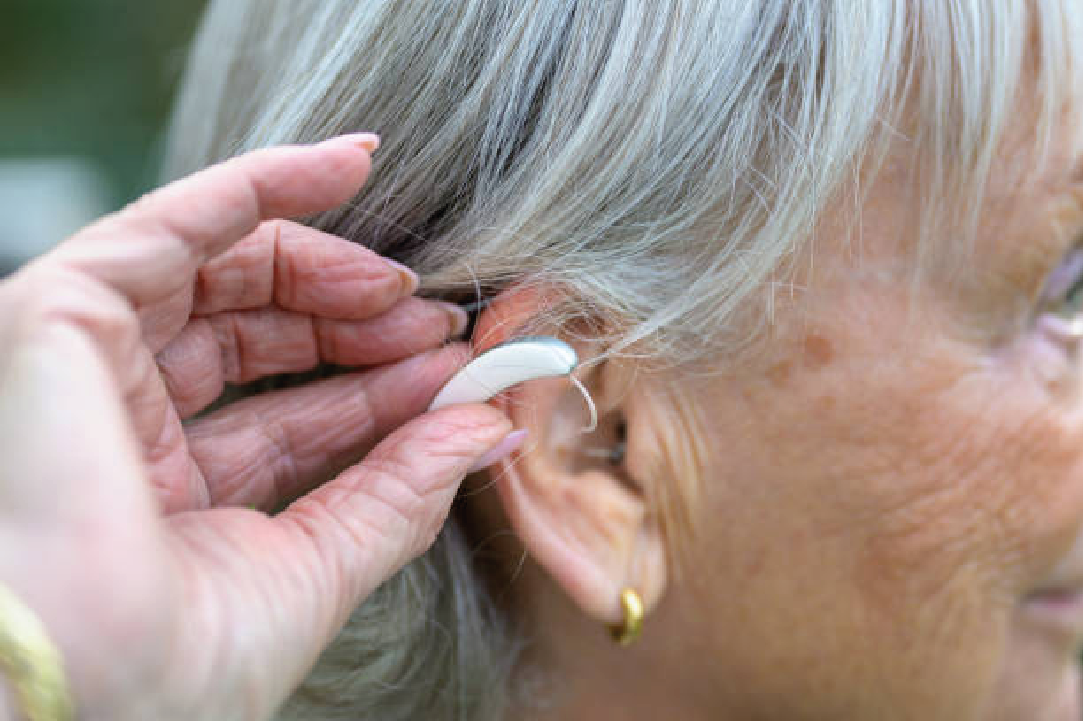Hearing loss is a common condition that can significantly impact a person's quality of life. While it often occurs gradually, it is important to recognize the signs and take action early to prevent further deterioration. If you or a loved one suspect that you may be experiencing hearing loss, here are five signs to watch out for and what steps you can take to address the issue.
What to do about it:
If you suspect you have hearing loss based on these signs, the first step is to schedule an appointment with an audiologist or an ear, nose, and throat (ENT) specialist. These professionals are trained to diagnose and treat hearing loss. They will conduct a comprehensive hearing evaluation, which may include a pure-tone audiometry test, speech audiometry, and other assessments to determine the extent and nature of your hearing loss.
Once your hearing loss is diagnosed, your healthcare provider will recommend appropriate treatment options. These may include:
Remember, early intervention is crucial when it comes to hearing loss. If you suspect you or a loved one may have hearing loss, don't hesitate to seek professional help. By addressing the issue promptly, you can improve your quality of life and enjoy the sounds of the world around you once again.
- Difficulty following conversations: One of the earliest signs of hearing loss is struggling to understand conversations, especially in noisy environments. You might find yourself frequently asking others to repeat themselves or feeling like people are mumbling. If you notice that you're having trouble comprehending what others are saying, it's time to get your hearing checked.
- Increasing the volume: Another indicator of potential hearing loss is the need to turn up the volume on the television, radio, or electronic devices higher than before. If you find yourself constantly reaching for the volume control or if others comment on the loudness of your devices, it's a strong indication that your hearing may have diminished.
- Social withdrawal: People with untreated hearing loss often withdraw from social situations due to the difficulties they face in communication. They may avoid social gatherings or feel isolated in group settings. If you find yourself declining invitations or feeling disconnected from others, it may be a consequence of hearing loss.
- Tinnitus: Tinnitus refers to the perception of ringing, buzzing, or other sounds in the ears without any external source. While it can have various causes, hearing loss is a common trigger. If you experience persistent tinnitus along with any of the other signs mentioned, it's essential to have your hearing evaluated by a professional.
- Feeling fatigued or stressed: Struggling to hear and understand conversations can be mentally and physically exhausting. Constantly straining to hear can lead to fatigue, increased stress levels, and even cognitive decline. If you find that you're frequently tired after social interactions or feel mentally drained from trying to hear properly, it's time to take action.
What to do about it:
If you suspect you have hearing loss based on these signs, the first step is to schedule an appointment with an audiologist or an ear, nose, and throat (ENT) specialist. These professionals are trained to diagnose and treat hearing loss. They will conduct a comprehensive hearing evaluation, which may include a pure-tone audiometry test, speech audiometry, and other assessments to determine the extent and nature of your hearing loss.
Once your hearing loss is diagnosed, your healthcare provider will recommend appropriate treatment options. These may include:
- Hearing aids: Depending on the type and severity of your hearing loss, hearing aids can significantly improve your ability to hear and understand speech. There are various types and styles of hearing aids available, ranging from behind-the-ear (BTE) to completely-in-canal (CIC) devices. Your audiologist will guide you in selecting the most suitable option for your specific needs.
- Assistive listening devices: These devices can be used in conjunction with or as an alternative to hearing aids. They include amplified telephones, TV listening systems, and personal sound amplifiers. Assistive listening devices are designed to enhance sound in specific situations, such as watching TV or participating in group conversations.
- Communication strategies: Learning effective communication strategies can help you navigate challenging listening environments. Techniques such as maintaining eye contact, facing the speaker, and asking for repetition or clarification can improve your ability to understand conversations.
- Cochlear implants: For individuals with severe to profound hearing loss who do not benefit from hearing aids, cochlear implants may be an option. These electronic devices bypass damaged parts of the inner ear and directly stimulate the auditory nerve, providing a sense of sound.
Remember, early intervention is crucial when it comes to hearing loss. If you suspect you or a loved one may have hearing loss, don't hesitate to seek professional help. By addressing the issue promptly, you can improve your quality of life and enjoy the sounds of the world around you once again.




Leave a comment
This site is protected by reCAPTCHA and the Google Privacy Policy and Terms of Service apply.